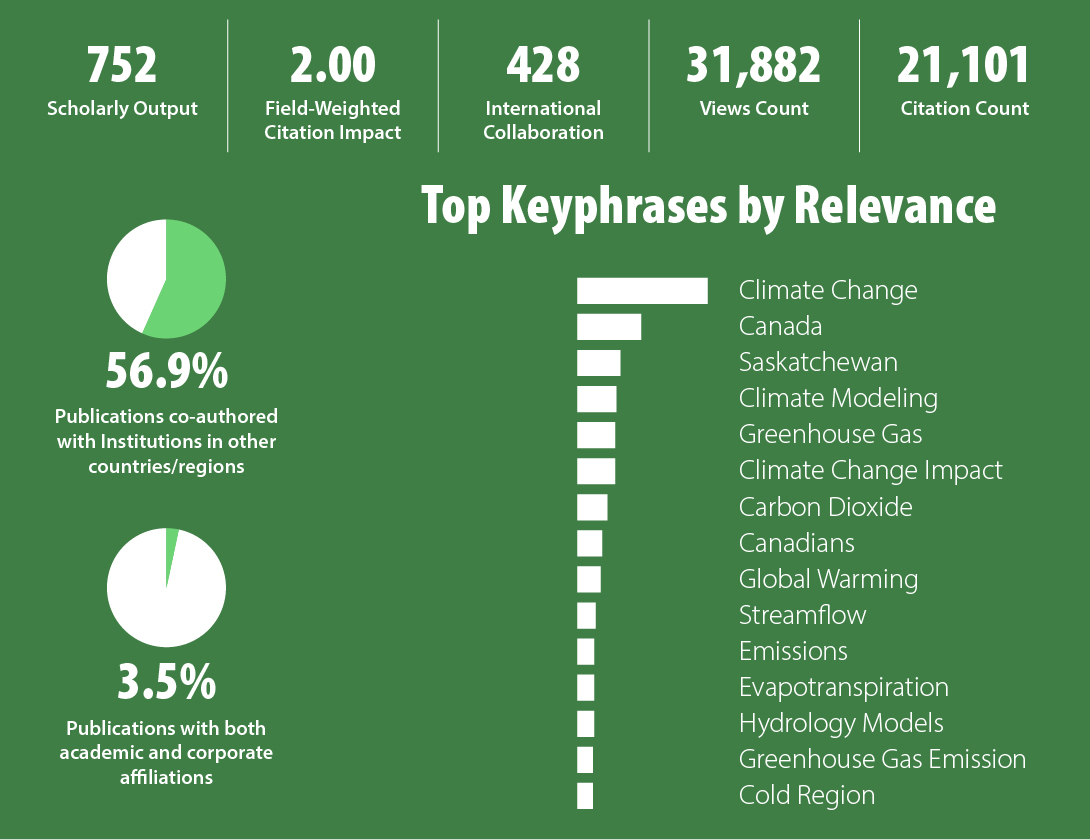Key Facts
Coming Soon!
News
Institutional Stewardship Initiatives
Green Buildings
According to the Canada Green Buildings Council, buildings have significant environmental impacts: They are responsible for up to 35% of all greenhouse gas emissions. 35% of landfill waste comes from construction and demolition activities. They account for 80 per cent of all water consumed. Recognizing the need to minimize these negative impacts, green building standards and practices have been integrated into the planning and design of a number of new buildings and renovations on campus. Over their lifetime, these projects will use less energy and water, generate less pollutants and greenhouse gases, produce less waste and cost less to operate than comparable projects.
Carbon Reduction Targets
The university has set a number of commitments to tracking, reducing, and mitigating our greenhouse gas emissions, including:- An inventory of our GHG emissions.
- Setting a target to reduce our emissions to 20% below our 2006/07 emissions by 2020, with a proposed update in our new draft strategy to reduce emissions by 45% by 2010 levels by 2030.
- An implementation of this new commitment is pending development following its approval by the university's governing bodies.
- A Climate Action Plan in 2012 to implement the operational changes put forth in the 2012 Campus Sustainability Plan.
- The development of an Energy and Water Conservation Policy in October 2014.
- An Energy Management Plan is currently in its development stages.
Energy and Water Conservation Policy
The purpose of this policy is to ensure the university operates in a sustainable manner managing energy and water consumption by using energy and water efficiently, wisely and responsibly. This policy contributes to meeting the university’s commitments and goals with respect to energy and water-related costs as well as greenhouse gas emissions associated with energy use.
Solar Arrays
The university has two solar arrays on its main campus. The Horticulture Department’s field office on 14th St features a 24 kW array erected in 2012, while right next to the John Mitchell Building lies a 5.12 kW array erected in 2016.Sustainability Strategy - Commitment 2
Commitment 2 of the university’s Sustainability Strategy sets specific carbon reduction targets to reduce USask’s greenhouse gas emissions 45% from their 2010 levels by 2030, and to achieve net-zero emissions by 2050.
Research Institutes, Centres, & Projects
Coming Soon!
Research Impact

Sample Courses
Earth’s climate is constantly changing in response to influences forced upon it by natural systems and human actions. It is expected that current and future climate changes will have a strong influence on human populations, society, and development. This course describes how humans predict future climate changes and how we can mitigate or adapt to those changes. Major topics discussed in this course will focus on the politics and economics of climate change and how these can help, or hinder, our attempts to manage climate change. More direct attempts, through geoengineering and weather modification, will be addressed as well.
This course examines traditional and contemporary approaches to disaster risk reduction (DRR) as practiced by Indigenous communities. Drawing on Indigenous philosophical traditions and adaptions in the face of colonization, topics examined will include: Indigenous interpretations of natural hazards, risk, vulnerability and resilience; the regulation of Indigenous planning and development; the role of Indigenous Knowledge in disaster response and recovery; the participation of Indigenous Peoples in provincial, federal and international disaster management; and the implementation of Indigenous DRR strategies in the 21st Century.
Focuses on the analysis of the processes whereby public policies arise and are enacted in Canada. The course compares theories and models of policy making and decision making to illustrate the special requirements of the Canadian environment and examines the roles of various participants in the policy process: legislators, political parties, interest groups, administrators and administrative structures, citizens, and the judiciary.
This course will provide students with a foundation in ecological theories relating to the restoration and remediation of terrestrial systems. Application and on-going development of restoration and remediation technologies in a range of impacted landscapes, including mine sites, rights-of-way, forests, grasslands and wetlands are examined.
For a full listing of related courses, please visit the Office of Sustainability's sustainablity course inventory.
